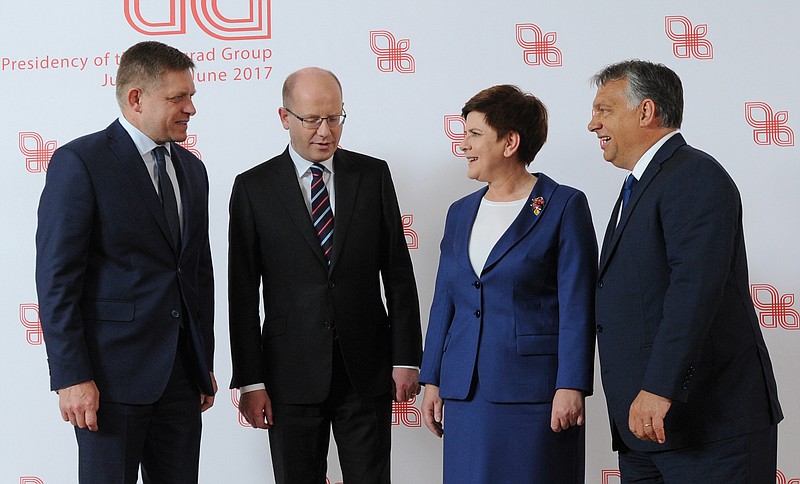WARSAW, Poland (AP) - The European Union needs reforms that would give more power to national parliaments, guarantee respect for European freedoms and ensure security under the pressure of a wave of migrants, leaders of the Visegrad Group of central European countries said Thursday.
Leaders of Poland, Hungary, the Czech Republic and Slovakia, or the V4, met in Warsaw to discuss the EU's prospects in the wake of Britain's decision to leave the club and ahead of an informal EU summit in September in Bratislava, Slovakia.
They agreed that Britain should remain a close partner of the EU, on terms that will be fair for all sides of the deal that will have to be negotiated as a result of Britain's decision. Warsaw is also suggesting that Britain should be allowed to reconsider its decision to leave, so-called Brexit.
Poland and countries in the region see a need for a new European treaty that would give more autonomy to EU member states, arguing that it would make membership more attractive and prevent other nations from leaving. Western countries believe such fundamental change is not necessary.
The Visegrad Group nations are not participating in the EU's program of accepting refugees, but some of them, like Hungary, were overwhelmed last year as migrants fleeing war and poverty flooded across borders to reach wealthy EU nations.
Hungary's Prime Minister Victor Orban appealed for help in protecting the nation's borders and linked lack of general security to some of the illegal migrants. He received support from Slovakia's Prime Minister Robert Fico.
Poland's Prime Minister Beata Szydlo said the EU should be based on things that unite and should seek joint solutions to problems like security and the massive wave of migrants.
The Visegrad Group is a platform for hammering out regional and European policies by its member states.
